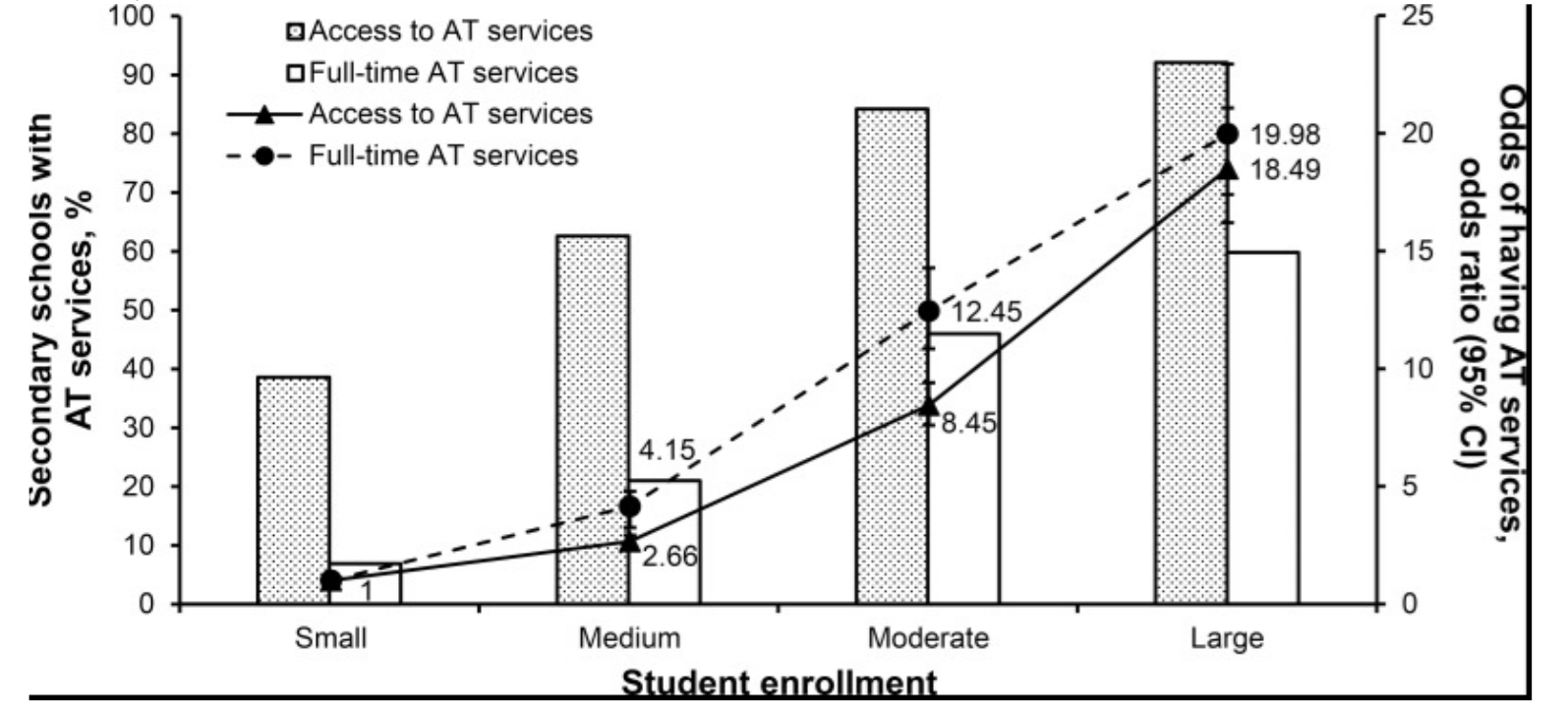Share this
Access to Athletic Trainers Based on Geographic Location
by Lauren Spirov on Nov 8, 2023 9:00:00 AM
The Problem - No ATs means increased risk!
As we well know, athletic trainers (ATs) are highly trained healthcare professionals who provide care for physically active people. Many ATs work with athletes on sports teams and their extensive education and training allow them to provide initial and follow-up care and referrals as needed. The benefits of ATs are irrefutable, but there's one big problem…access to ATs differs significantly based on geographic location. Youth sports in secondary schools remain popular, yet there is a huge disparity in access to healthcare for these students. These disparities exist in the United States largely based on socioeconomic status (SES), a measure of one's combined economic and social status and is typically positively associated with improved health. We know that consistent access to ATs improves injury reporting, decreases emergency department visits, and improves access to preventative care and injury management. So, it's important to understand the barriers to access to AT services in youth sports and what can be done to increase access!
Recently, one study found that public secondary schools in communities with lower SES had less access to athletic training services when compared to private schools and that larger public schools had higher rates of AT employment compared to smaller public schools. In another study, researchers from the University of Colorado analyzed concussion data from more than 200 girls' high school soccer and basketball teams. They found that 5-8 times more concussions were diagnosed in schools that had a full-time AT compared to schools with no AT.

While problematic, these barriers to ATs could be attributed to these schools being in areas with a smaller tax base, which leads to schools having less money to employ ATs. Another possible barrier is that public school systems are experiencing national budget cuts and cannot hire ATs when other school staff are laid off.
The Solution - How You Can Help!
Ultimately, the sports medicine community can help by highlighting how improving access to athletic training services may reduce overall costs to the community by providing preventative services and reducing additional healthcare costs. Pilot programs or government funds have been used previously to fund athletic training services and should be considered to ensure equitable access, regardless of school SES. Finally, the AT community can engage in lobbying, media campaigns, and stakeholder education to advocate for equitable access to healthcare in youth sports.
Click here to learn more about the many benefits of athletic trainers!
References
- https://www.injurefree.com/
- https://pubmed.ncbi.nlm.nih.gov/33480996/
- https://meridian.allenpress.com/jat/article/58/2/91/471609/Differences-in-Access-to-Athletic-Trainers-in
- https://www.sportsmedres.org/socioeconomic-status-access-to-athletic-training-services/
- https://thesportsinstitute.com/do-high-school-athletes-really-need-athletic-trainers-part-ii-concussions-and-time-loss-injuries/
Share this
- Blog (112)
- risk management ecosystem (28)
- Injury Reporting (25)
- sports safety (22)
- InjureFree (16)
- Atheletic Data (15)
- Technology Fridays (14)
- Athletic Trainer (13)
- coach (13)
- performance (13)
- Proactive (12)
- Robotics (12)
- Athlete Data (11)
- Policies (11)
- Data-Driven (10)
- 3D Printing (9)
- Athlete Safety (7)
- Biomechanical Movements (7)
- Athletic Trainer Placement (6)
- Injury Management (6)
- National Youth Sports (6)
- Protecting Youth (6)
- Virtual Athletic Trainer (6)
- Big Data (5)
- Consumer Insurance (5)
- prevention (5)
- safer sporting environment (5)
- Policy Development (4)
- Safeguarding & Compliance Management (4)
- documentation (4)
- Athletic Recovery (3)
- Business Insurance (3)
- Injury Recovery (3)
- Risk Management Consulting (3)
- Telemedicine (3)
- communication (3)
- data collection (3)
- Abuse Prevention (2)
- Abuse Reporting (2)
- Baseball (2)
- Investigations Management (2)
- Nutritional Intake (2)
- Reporting Misconduct (2)
- Return to Sport (2)
- Speak Out (2)
- Sports Benifits (2)
- abuse (2)
- bullying (2)
- concussion (2)
- • Heart Rate Variability (2)
- Background Check Facilitation (1)
- Coach Compliance (1)
- Creating Awareness (1)
- Football Helmet (1)
- Misconduct Education (1)
- NIL (1)
- Parents (1)
- Physical Therapy (1)
- Sports Advocacy (1)
- Sports Rehabilitation (1)
- Sports Specialization Awareness Week (1)
- discrimination in youth sports (1)
- doctor (1)
- safe environmen (1)
- October 2024 (1)
- August 2024 (2)
- July 2024 (3)
- June 2024 (4)
- May 2024 (1)
- April 2024 (7)
- March 2024 (7)
- February 2024 (8)
- January 2024 (9)
- December 2023 (8)
- November 2023 (6)
- October 2023 (6)
- September 2023 (6)
- August 2023 (9)
- July 2023 (8)
- June 2023 (8)
- May 2023 (9)
- April 2023 (4)
- March 2023 (5)
- February 2023 (4)
- January 2023 (4)
- December 2022 (4)
- November 2022 (1)

No Comments Yet
Let us know what you think